Step by inevitable step: Lungu’s strategic march to 2021 and beyond
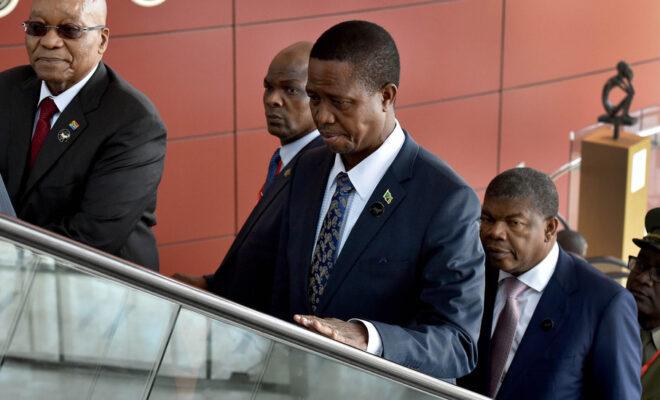
If President Lungu is deemed eligible to run for a third term, he will have removed one more hurdle to extending his rule. He has plans for the rest.
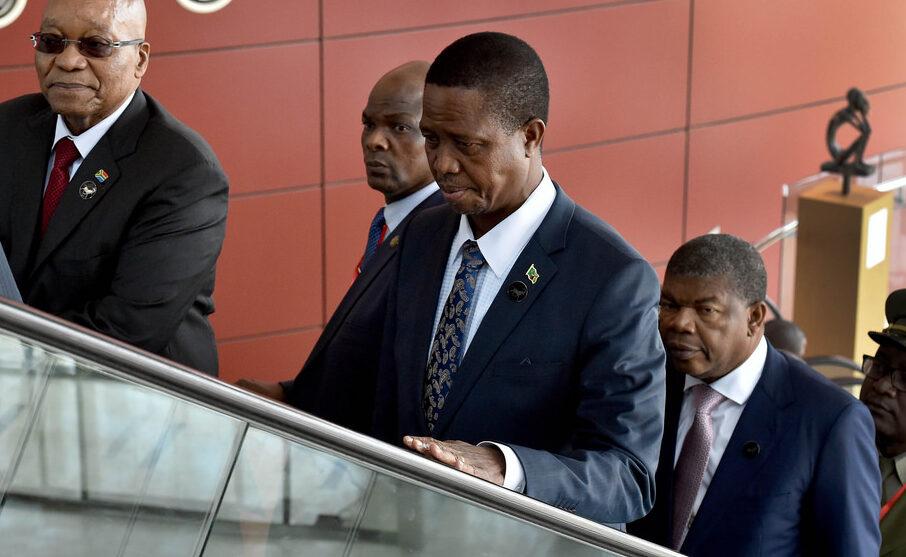
Zambia’s President Edgar Lungu has demonstrated increasingly authoritarian tendencies across his time in office, strategically removing dissenters and rivals. Credit: GCIS.
Last month, most Zambians were surprised to learn that President Edgar Lungu has been in secretive talks with opposition leader Hakainde Hichilema. The two rivals had previously agreed to discuss reforms as part of a Commonwealth-brokered deal, but few expected the dialogue to actually take place.
Back in April 2017, when Hichilema was languishing in detention on treason charges, the president had agreed to engage in talks regarding electoral law, judicial independence and media freedoms with his counterpart. This was part of a deal to negotiate the opposition leader’s release as Zambia’s political landscape soured in the wake of the August 2016 elections. After Hichilema was eventually freed that August, however, little more was said about the planned talks.
It was assumed they would never happen. Yet over a year later, they apparently did – albeit under slightly strange circumstances. On 12 November 2018, Lungu and Hichilema, accompanied only by their security details, reportedly met for talks at an undisclosed location under the auspices of Zambia’s Christian church leaders.
The question is why now? And why under such secrecy?
Why start talks now?
There are two overarching reasons. The first, and most significant, is the upcoming judgement by the Constitutional Court. On Friday 7 December, the Court is due to rule on whether Lungu is eligible to stand for re-election in 2021. Zambia’s Constitution contains a clear two-term limit, but the president’s supporters claim that Lungu’s first term – which was just 18 months long, following the untimely death of President Michael Sata – should not count.
It is widely assumed that the Constitutional Court will rule in favour of Lungu. All its judges were appointed by president – even though none of them met the necessary qualifications to legally serve on it – and it is under heavy state pressure. The governing Patriotic Front (PF) is so certain of the verdict that it has already announced Lungu as its presidential candidate for 2021 and begun distributing “Edgar Lungu 2021” campaign materials.
The president’s decision to start dialogue over reforms at this moment should be understood as a response to this changing political context. When the court makes its ruling, Lungu knows he will be criticised for dictatorial tendencies, but the talks give him a way to deflect those critiques and claim he is genuinely committed to democratisation. He can argue that the court made its own decision and that he has already initiated discussions with the opposition so that the country can ensure free and fair elections.
The second reason Lungu has opened discussions with Hichilema is that he feels comfortable with the facilitators. Previously, the two politicians had been deadlocked over which body would oversee the talks. Lungu rejected Commonwealth mediation and said the Zambia Centre for Interparty Dialogue (ZCID) should manage the dialogue. Hichilema dismissed the ZCID as pro-PF and insisted either the Commonwealth or Zambian church mediate.
At the time of this dispute, the most influential church body – the Zambia Conference of Catholic Bishops (ZCCB) – was led by Telesphore Mpundu. The Archbishop of Lusaka had been outspoken, criticising human rights abuses by the government, condemning Hichilema’s arrest, and denouncing the police and judiciary for failing “to stand up to political manipulation and corruption”. He had described Zambia under Lungu as a “dictatorship in all except designation”.
The president was therefore reluctant to have the ZCCB oversee the talks with Mpundu in charge. But this changed in January 2018 when the bishop retired under curious circumstances, just two months after he had been re-elected as ZCCB president. Mpundu was officially discharged on medical grounds, but sources in the Catholic Church allege that the Zambian government lobbied the Vatican’s diplomatic representative in Zambia to have the critical Archbishop quietly retired.
Mpundu’s successor, Alick Banda, is much less critical of Lungu. When his predecessor previously condemned the government, for example, Banda quickly distanced himself from the statement and instead criticised Hichilema for refusing to accept the 2016 election results.
With a favourable leadership now at the helm of the influential Lusaka Diocese and ZCCB, Lungu feels confident enough to proceed with church-mediated talks. Hichilema, who originally demanded that Zambia’s church bodies oversee the dialogue, has been backed into a corner, while Lungu is already being praised for “conceding” to his opponent’s request.
It is too early to say what will result from the talks, but three scenarios stand out as being the most plausible. One is that Lungu will allow the talks to drag on unresolved until the 2021 elections. Another is that Hichilema, belatedly realising his naivety, will quit the negotiations. And the third is that the dialogue will result in some agreements, which Lungu will then ignore lest they undermine his re-election prospects.
Lungu’s plan for Zambia 2021
Behind all this scheming is Lungu’s determination to win the 2021 elections. With his eligibility to stand all but confirmed, he has a high chance of doing so. In 2016, the president employed state institutions such as the police, Electoral Commission of Zambia (ECZ) and media to tilt the playing field. If anything, these institutions have become even more firmly under executive control.
Lungu could feasibly face some challenges from within the ruling PF. There are several anti-Lungu elements within the party and a senior official told African Arguments the PF could splinter following the Constitutional Court’s 7 December judgement. However, this is rendered unlikely by the fact that the president’s main challengers have all already been kicked out of the PF or are on their way out. The figures opposed to Lungu still in the party are either too timid or lack the resources to mount an effective challenge at the PF’s 2020 elective conference.
Lungu is also positioning himself to stave off internal resistance in other ways. His expected decision to choose a running mate from Luapula Province should help him retain some support from the increasingly disenchanted Bemba-speaking constituencies and ward off the threat from Harry Kalaba, who now leads the opposition Democratic Party. He is likely to maintain the PF’s working alliance with the former ruling Movement for Multiparty Democracy (MMD) to compensate for the possible loss of support in in traditional PF bases. And he will continue appeasing his inner circle.
This latter group largely consists of corruptible political and business leaders who pawn off the country for a few trinkets at a time, accumulate through brazen theft of public resources and the massive sale of Zambian assets to so-called investors, and strut around with self-importance when they are nothing but the disposable playthings of even bigger global kleptocrats. They are unlikely to be concerned about who leads the PF and Zambia so long as they can continue to enrich themselves.
Taking out opposition rivals
Also likely to help Lungu’s re-election is the fragmentation of the opposition. In 2016, the main opposition United Party for National Development (UPND) lost by just 13,000 votes in what was effectively a two-horse race. In 2021, the field will be more widely contested. Along with the UPND’s nominee, former minister Chishimba Kambwili of the National Democratic Congress and Kalaba of the Democratic Party are both likely to run. This will split the opposition vote, a fact that the government is seeking to further exploit by attempting to change the constitution to remove the requirement that the presidential victor gain 50%+1 and switch instead to a first-past-the-post system.
Leaving no stone unturned, Lungu also appears to be setting the groundwork to target his main opponents.
Hichilema is particularly vulnerable on two fronts. The first derives from the fact that Zambia’s revised 2016 Constitution requires political parties to hold regular elections and that the PF is currently preparing to pass a bill that would give effect to this provision. Sources in the ruling party speak of a plan to pass laws barring undemocratic parties as well as candidates who have run unsuccessfully more than twice in the past. The UPND has not held any internal elections for 12 years, while Hichilema has contested the presidency five times.
The second way in which Hichilema could be undermined is through imprisonment. Under Zambian law, a person serving a sentence is ineligible to run for president. In possible preparation for disqualifying Hichilema through these means, the government recently accused the opposition leader of inciting the rioters who protested the rumoured sale of the state-owned timber company last month. Hichilema is also being investigated in relation to his role as a private evaluator in Zambia’s privatisation process in the 1990s. Lungu recently talked of these allegations publicly, saying: “It is sad that the people that were entrusted with the privatisation process at the time shamelessly sold off the state-owned enterprises and even now boast of riches which they literally looted through the privatisation process to the disadvantage of the poor ordinary majority.”
Along with Hichilema, the government could also target Kambwili. The probable presidential candidate is an effective grassroots mobiliser and populist. He has accused Lungu of being beholden to the Chinese and of having abandoned former President Michael Sata’s pro-poor policies. Kambwili has significant support on the urban Copperbelt and could hurt the PF.
However, further indications that the government is planning to subvert him surfaced a few days ago. In a leaked recorded phone conversation, Minister of Home Affairs Stephen Kampyongo can be heard vowing to teach Kambwili a “lesson” he will never forget. On 29 November, the police then arrested the opposition leader for unlawful assembly. The charge arose from Kambwili’s earlier address to Zambian employees of a Chinese firm who were protesting against poor working conditions.
On top of this, Kambwili already faces over thirty separate charges. Critics claim the ruling authorities are eager to secure a conviction against him that would keep him out of the running in 2021.
The resistance (or lack thereof)
Zambians should brace themselves for Lungu’s presidency to continue beyond 2021. The president has the key institutions on his side and has demonstrated his ability to win elections by hook or by crook. Since his re-election in 2016, he has gone even further in silencing the free press, opposition parties and internal PF rivals.
Will this all end in a fully-fledged dictatorship? I think not. For all his advantages, Lungu ultimately lacks the political capital, broad popularity and material resources to emulate his autocratic role models such as Uganda’s Yoweri Museveni or Rwanda’s Paul Kagame. But his actions will certainly undermine Zambia’s cherished democracy, political institutions and culture. Furthermore, like other world leaders in a similar mould – from the Donald Trump in the US to Jair Bolsonaro in Brazil – he is likely to leave havoc in his wake.
One difference with the likes of the US, however, is that Zambia’s civil society is very weak. There are few organisations able to mobilise people against actions they see as illegitimate or illegal. At one point, the Law Association of Zambia (LAZ) was an exception to this, but it now appears to have been captured by the PF.
Under the previous leadership of Linda Kasonde, whose term of office ended in April this year, LAZ exerted every effort to fulfil its mandate of defending the rule of law. But following elections that saw one or two PF supporters assume senior leadership roles, the association has transformed. For example, last month, the Supreme Court sentenced anti-corruption activist Gregory Chifire to six years in prison for contempt. Rather than questioning one of the country’s most bizarre rulings ever, however, LAZ leapt to praise it. “The sentence sends a message that Zambians must not engage in unwarranted attacks that tarnish the image of the judiciary,” it said.
Zambia was once so highly regarded as a model of democracy. It is now deep into a slide, not so much into dictatorship as chaos. Sadly, many people within and beyond have still yet to come to terms with the country’s changing political character. By the time they do, it might be too late.


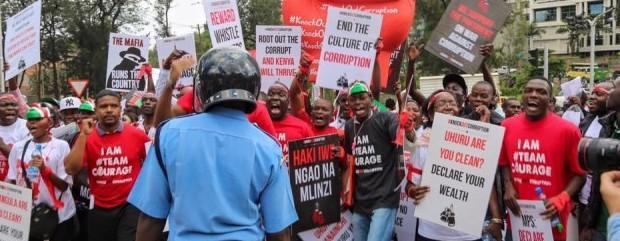
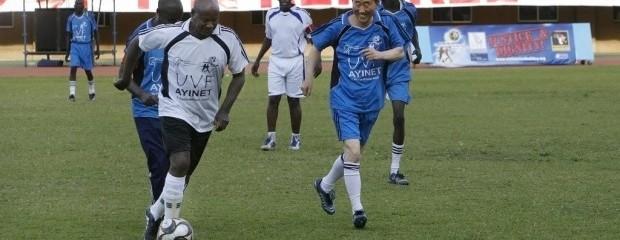
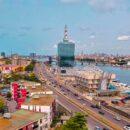


My opinion is that a term is to the party not to the president the party exist and it should exist for 10 years only. Keeping what we start is very important for the future of the country
To clarify what I mean, the president serves under a party that is rulling and when the term of the party ends that’s it, they should be no extension to suit individual president. Because if every one who comes on this job has power to change this position, then no one will be a custodian or accountable.
The article is very biased, it just critises Mr Lungu such that we seen other political utter unpalatable and damaging statements but the author write about that
Zambians be very careful of Lungu. The most gullible voters will be the rural populace. Once chaos like this starts and Lungu finds himself able to twist all arms of Government to suit himself then just know a Robert Mugabe- Lungu has been born.
chloroquin side effects https://chloroquineorigin.com/# hydrochoriquine